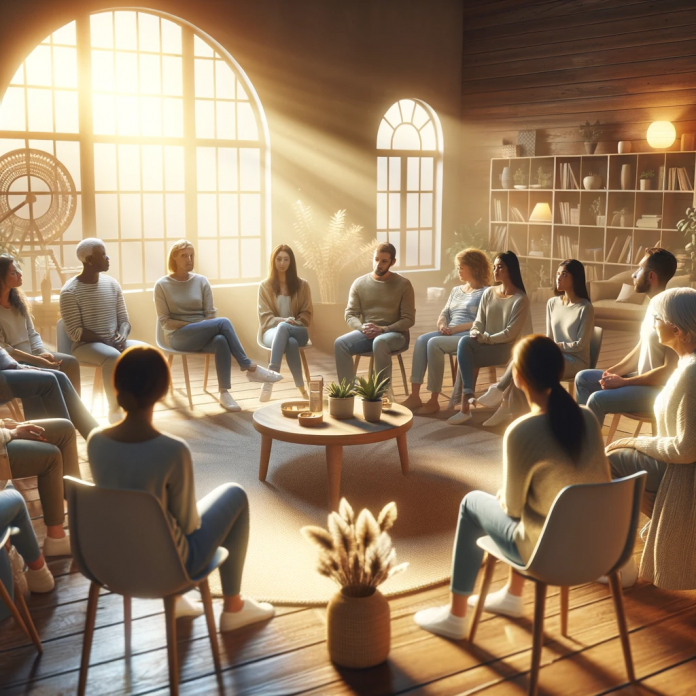Grief is a universal human experience, yet it is often misunderstood and mishandled. Grief workshops and seminars play a crucial role in providing education, support, and healing for those dealing with loss. This comprehensive guide will delve into the importance of these workshops and seminars, and how they can make a significant difference in the lives of individuals and communities.
Understanding Grief
Grief is a natural response to loss, encompassing a range of emotions from deep sadness to anger. It can be triggered by various events, such as the death of a loved one, the end of a relationship, or major life changes. The process of grief is highly individual and can vary greatly from person to person.
Despite its universality, grief is often misunderstood. Many people are uncomfortable with the intense emotions it brings, leading to a lack of support for those in grief. This is where grief workshops and seminars come in, providing much-needed education and understanding around this complex issue.
The Stages of Grief
One of the key aspects of understanding grief is recognizing its stages. While not everyone will experience all stages or in the same order, they provide a framework for understanding the grief process. These stages include denial, anger, bargaining, depression, and acceptance.
Grief workshops and seminars often focus on these stages, helping participants to recognize where they are in their grief journey and providing tools to navigate each stage. Understanding these stages can also help friends and family provide appropriate support.
The Role of Grief Workshops and Seminars
Grief workshops and seminars serve several important functions. They provide education about the grief process, offer a supportive environment for individuals to share their experiences, and teach coping strategies to help manage grief.
These workshops and seminars are often led by professionals in the field of grief and bereavement, such as therapists, counselors, or social workers. They may be offered in various settings, including hospitals, community centers, or online platforms.
Educational Component
The educational component of grief workshops and seminars is crucial. It helps to dispel myths and misconceptions about grief, providing a more accurate understanding of the process. This education can help individuals better understand their own experiences and can also equip others to provide more effective support.
Topics covered may include the stages of grief, common reactions to loss, and the difference between grief and depression. This education can be empowering, helping individuals to feel less alone in their grief and more equipped to handle their emotions.
Supportive Environment
Another key aspect of grief workshops and seminars is the supportive environment they provide. Grief can often feel isolating, as individuals may feel that others do not understand their experience. In a grief workshop or seminar, participants are surrounded by others who are also experiencing loss, creating a sense of community and understanding.
These workshops and seminars also provide a safe space for individuals to express their emotions and share their experiences. This can be therapeutic and can help individuals to process their grief.
Coping Strategies
Grief workshops and seminars also teach coping strategies to help individuals manage their grief. These strategies may include mindfulness techniques, journaling, art therapy, and physical activity. They provide practical tools that individuals can use in their daily lives to help manage their emotions and navigate their grief journey.
These coping strategies can also help to prevent complications of grief, such as prolonged grief disorder or major depression. By providing these tools, grief workshops and seminars can help individuals to heal and move forward.
The Impact on Communities
Grief workshops and seminars not only benefit individuals, but also have a significant impact on communities. By educating the community about grief, these workshops and seminars can foster a more compassionate and understanding environment for those experiencing loss.
They can also help to reduce stigma around grief and mental health, encouraging more open conversations about these important issues. This can lead to increased support for those in grief and a healthier, more supportive community overall.
Building a Supportive Community
One of the key ways that grief workshops and seminars impact communities is by building a supportive environment for those in grief. By educating community members about the grief process, these workshops and seminars can help to foster understanding and empathy.
This can lead to more effective support for those in grief, as friends, family, and community members are better equipped to provide the understanding and compassion that those in grief need.
Reducing Stigma
Grief workshops and seminars can also help to reduce stigma around grief and mental health. By openly discussing these topics, these workshops and seminars can help to normalize these experiences and encourage open conversation.
This can lead to increased mental health awareness and support within the community, benefiting not only those in grief, but also those dealing with other mental health issues.
Conclusion
Grief workshops and seminars play a crucial role in supporting individuals and communities dealing with loss. They provide education, create a supportive environment, teach coping strategies, and foster a more compassionate community. By understanding and acknowledging the importance of these workshops and seminars, we can better support those in grief and create healthier, more understanding communities.


-banner.png)





